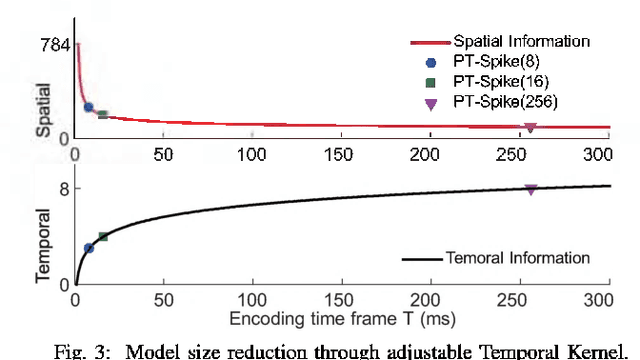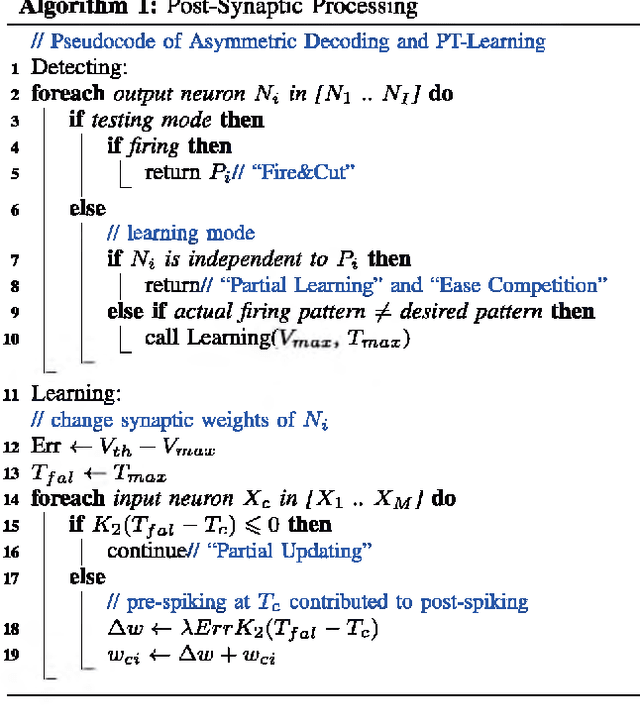PT-Spike: A Precise-Time-Dependent Single Spike Neuromorphic Architecture with Efficient Supervised Learning
Paper and Code
Mar 14, 2018



One of the most exciting advancements in AI over the last decade is the wide adoption of ANNs, such as DNN and CNN, in many real-world applications. However, the underlying massive amounts of computation and storage requirement greatly challenge their applicability in resource-limited platforms like the drone, mobile phone, and IoT devices etc. The third generation of neural network model--Spiking Neural Network (SNN), inspired by the working mechanism and efficiency of human brain, has emerged as a promising solution for achieving more impressive computing and power efficiency within light-weighted devices (e.g. single chip). However, the relevant research activities have been narrowly carried out on conventional rate-based spiking system designs for fulfilling the practical cognitive tasks, underestimating SNN's energy efficiency, throughput, and system flexibility. Although the time-based SNN can be more attractive conceptually, its potentials are not unleashed in realistic applications due to lack of efficient coding and practical learning schemes. In this work, a Precise-Time-Dependent Single Spike Neuromorphic Architecture, namely "PT-Spike", is developed to bridge this gap. Three constituent hardware-favorable techniques: precise single-spike temporal encoding, efficient supervised temporal learning, and fast asymmetric decoding are proposed accordingly to boost the energy efficiency and data processing capability of the time-based SNN at a more compact neural network model size when executing real cognitive tasks. Simulation results show that "PT-Spike" demonstrates significant improvements in network size, processing efficiency and power consumption with marginal classification accuracy degradation when compared with the rate-based SNN and ANN under the similar network configuration.
 Add to Chrome
Add to Chrome Add to Firefox
Add to Firefox Add to Edge
Add to Edge